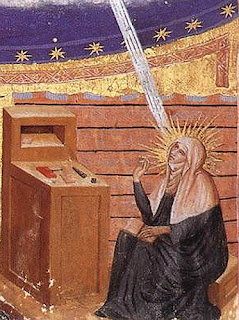|
The
Experiential Dimension(experience)
What does it mean to "feel the presence of God?" Or to experience the Holy? Or to be "one with the universe?" 1. The sacred, whether expressed as ALLAH (Islam), Brahman (Hinduism), Emptiness (Mahayana Buddhism), Y-W-H (Judaism), God (Christianity) or some other formulation, is felt to be The universal foundation of all truth, reality, goodness, and value.
2. Since the sacred dimension of reality is a source of ultimate value, the deepest need of human life is to have an ongoing relationship with the sacred.
The Religious Experience of the sacred is difficult to describe but, nonetheless, a powerful and important part of human experience. It is a portal that allows us to move from the everyday, ordinary experience into a new, extraordinary level of consciousness.
The pervasiveness of Religious Experience
·No matter how non-religious you might be, at some time due to some event, you will experience the religious
impulse whether it be a need to find meaning in a tragic occurrence such as a
cataclysmic nature event, or a way to express thankfulness for an extraordinary
event such as the birth of a child or a way to try to explain the often
inexplicable challenges and changes of everyday human existence.
· Religion traditionally has provided ways to help humans make sense of their lives by providing answers to pro-found life questions, guiding ethical behaviour and offering solace and comfort in the face of our shared mortality.
PERVASIVENESS OF RELIGIOUS EXPERIENCE
1. Everyone Experiences Rites of Passage = major life events: birth, death, suffering, adulthood, marriage, love, tragedy, etc. = rites of passage generate boundary questions. 2. These Experiences Generate Boundary Questions = questions concerning identity, relationship, meaning, purpose, etc. 3. Most people are forced to ask boundary questions, at least during rites of passage. 4. Religions provide answers to boundary questions experienced during rites of passage. 5. Since all human beings go through rites of passage, and find answers to their identity questions, religious activity is pervasive in human experience.
Types of Religious Experience
NUMINOUS EXPERIENCE The numinous experience is an encounter with the Divine/God; awe-inspiring; terrifying yet attractive; separation between Divine and human identities. People experience awe and fear at the same time. Example= Moses encounters God in the "burning bush"
MYSTICAL EXPERIENCE
In the mystical experience one experiences a loss of personal identity; merging with the totality of Being (God, the Divine, Mind, Consciousness, etc. ) These experiences can be grouped in three types: · Nature mysticism - merging with all or part of the natural world · Monist mysticism - merging or being one with the mind/ force/ intelligence/ consciousness of the universe. · Theist mysticism - merging with the divine or God. Religious Experience: Mystical
NATURE MYSTICISM
 You've been touched by natural/nature mysticism if you are overwhelmed by
feelings of interconnectedness or unity with the cosmos. Usually the
experience brings a sense of complete inner-peace, assurance that all will be
well. Many mystics point to a positive and complete transformation of
identity which leads to a more compassionate, caring set of relationships. You've been touched by natural/nature mysticism if you are overwhelmed by
feelings of interconnectedness or unity with the cosmos. Usually the
experience brings a sense of complete inner-peace, assurance that all will be
well. Many mystics point to a positive and complete transformation of
identity which leads to a more compassionate, caring set of relationships.
MONIST MYSTICISM (merging with the divine mind/consciousness)
 The monist mystic envisions the divine in everything. He/she also makes important connections between mystical experience and meditation. Meditation means a rigorous discipline of mental, spiritual and physical development that proceeds through a set of practices leading to a higher level of concentration, compassion, wisdom, mindfulness and, ultimately, enlightenment. "Meditation is the very center and heart of spiritual life, It matters not whether you are a follower of the path of karma, or of devotion or knowledge, whether you are Christian or Buddhist or a Hindu, sooner or later you have to practice meditation, you have to become absorbed in divine contemplation; there is no other way." THEIST MYSTICISM (merging with and manifestation of the divine) Theist mysticism begins as a numinous experience. In each case, the believer becomes so in love with the manifestation of the Divine, that the boundaries between perceiver and perceived blur until the all-important experience of unity, oneness or interconnectedness are attained. When you go deeper into yourself, spiritually, it is like a tree extending its roots deep into the earth. Strong roots allow the branches to reach out and intertwine with the branches of other trees. And beneath the surface, the roots also embrace. "If therefore we seek Jesus, the word, we must be able to see Him in the created things around us - in the hills, the fields, the flowers, the birds and animals that He created, in the sky and the trees. We must be able to see Him in nature. Nature is no obstacle to our contact with Him, if we know how to use it." Thomas Merton (see: http://www.merton.org/) |
AN EXTENSIVE BLOG ON WORLD RELIGIONS, SPIRITUALITY AND OTHER ASPECTS OF THE PHENOMENON CALLED RELIGION
THE EXPERIENTIAL DIMENSION
Subscribe to:
Post Comments (Atom)










No comments:
Post a Comment
Feel free to comment on this blog. I am happy to receive requests for more topics,